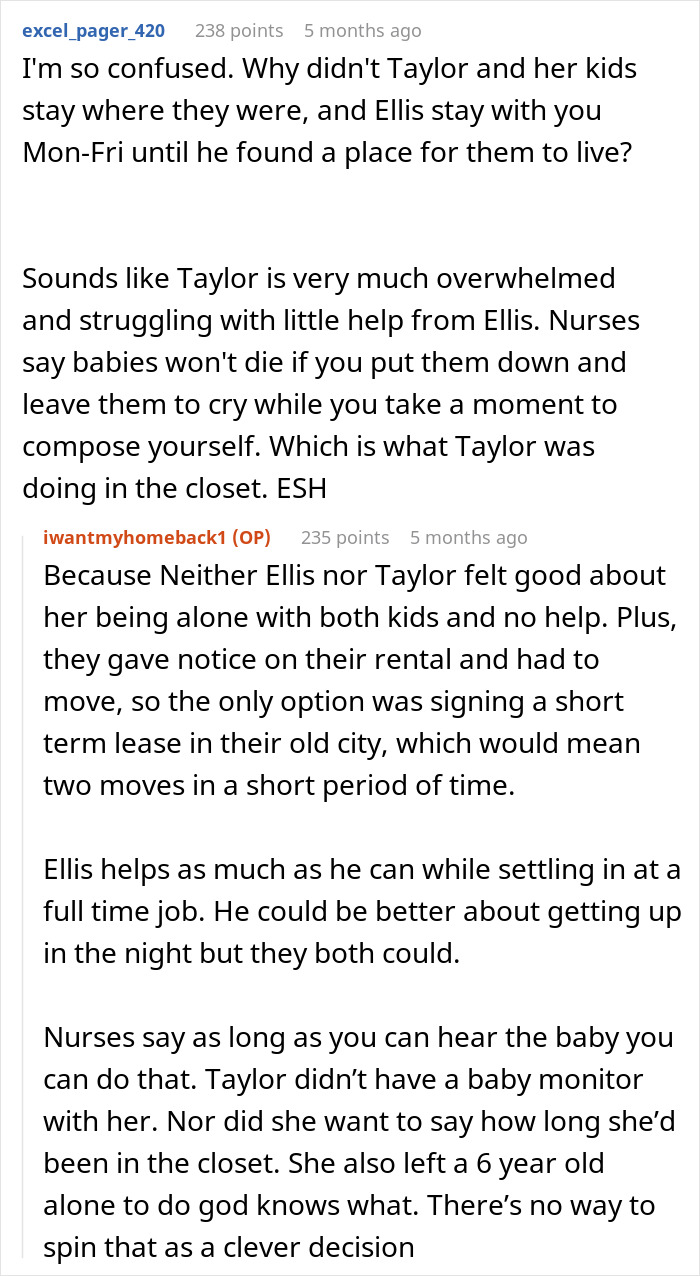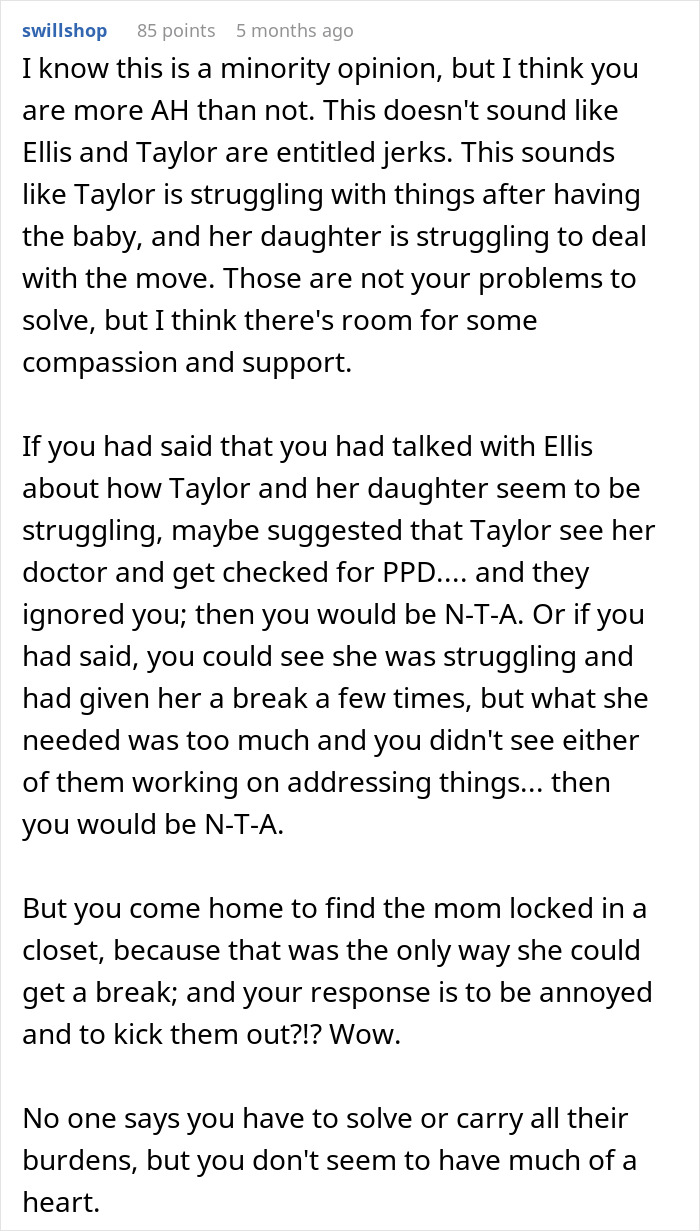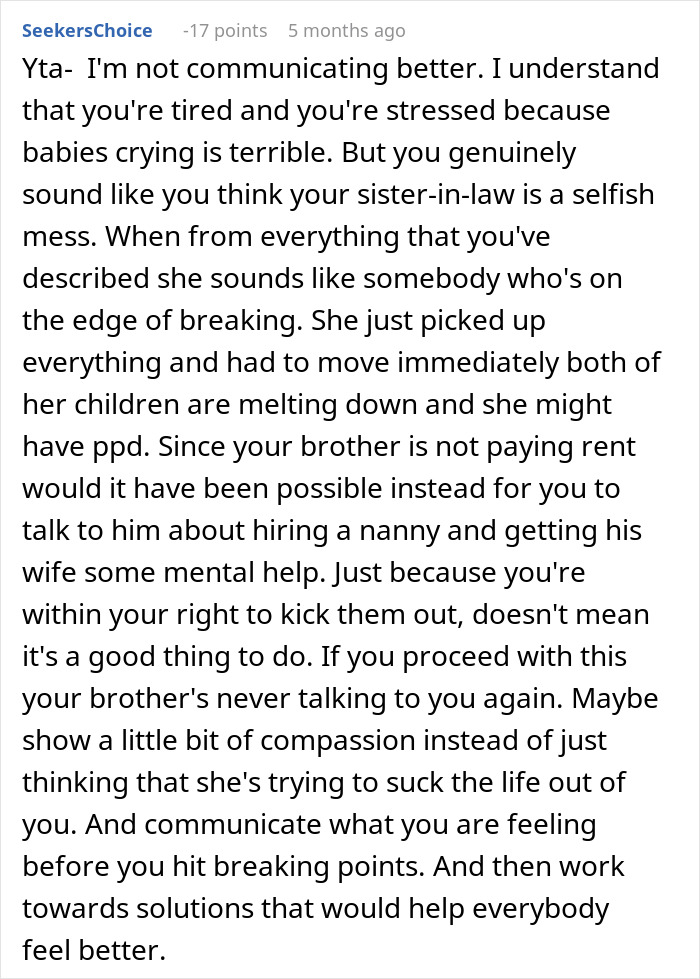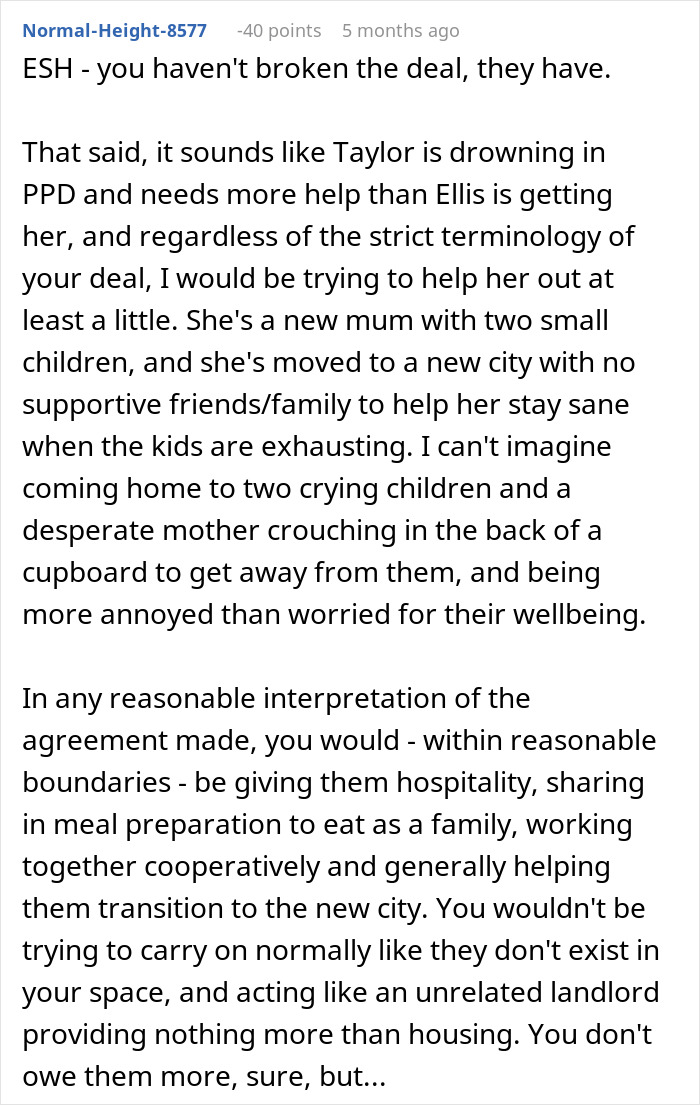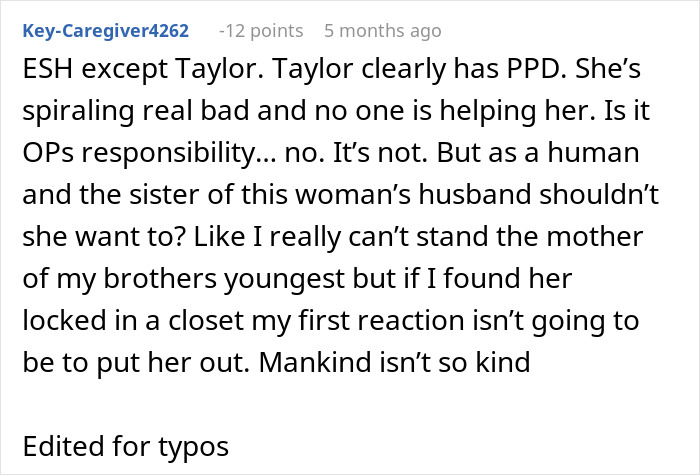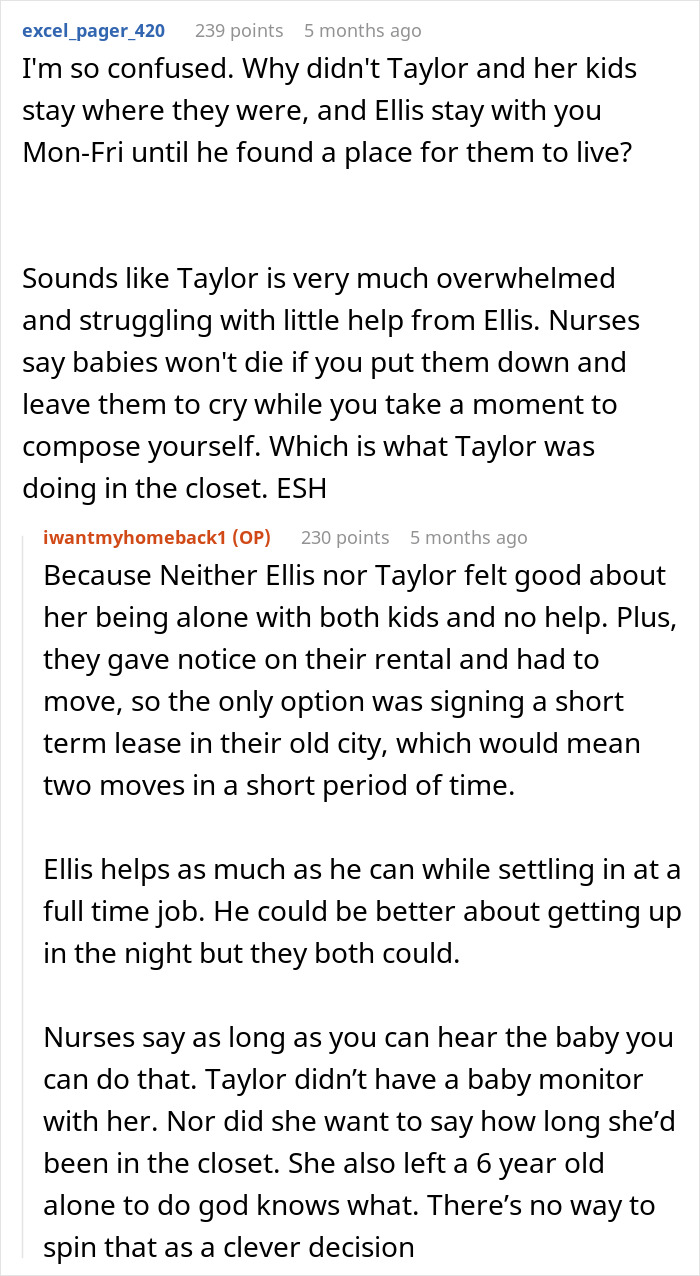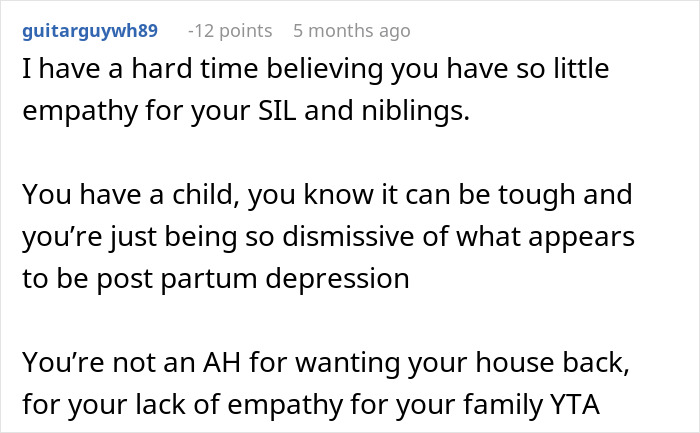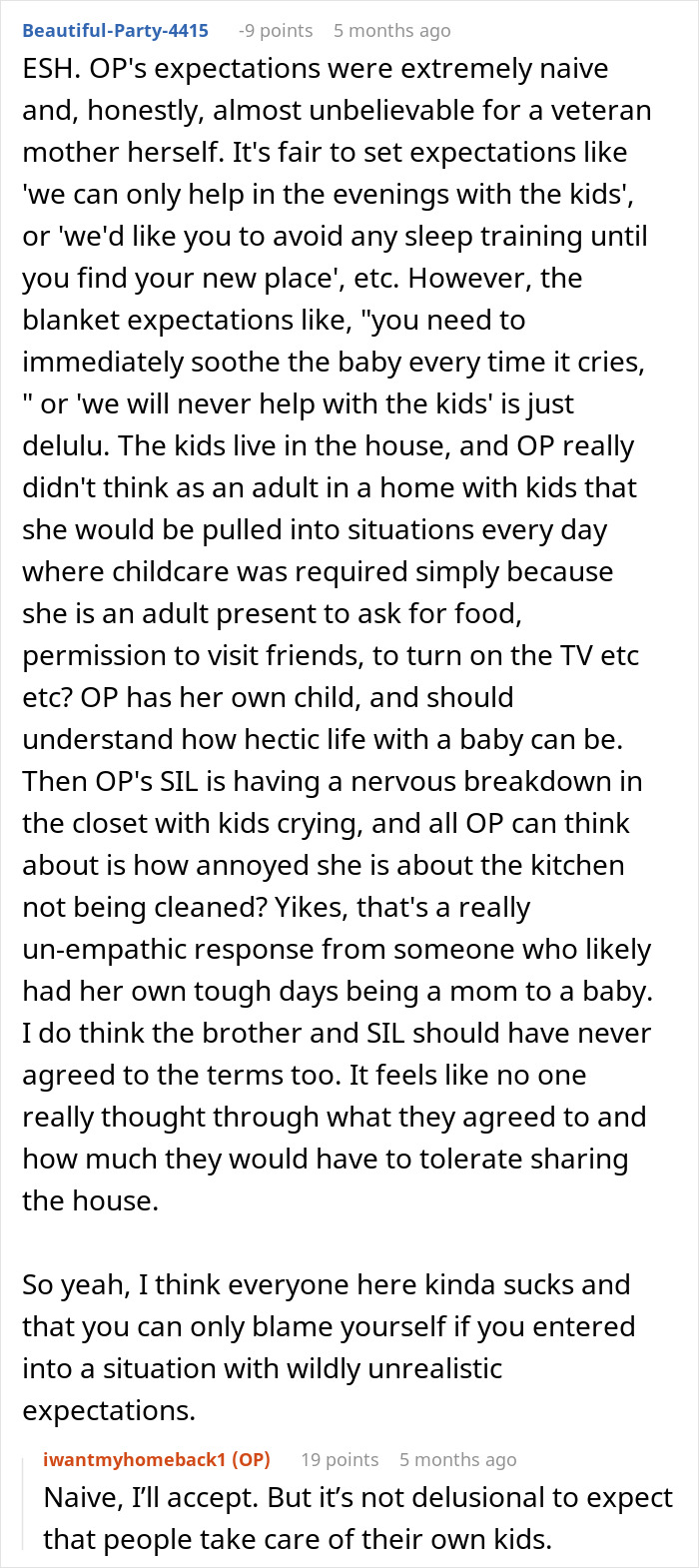Sometimes, being there for your family members in times of need can be tricky.You might want to extend a helping hand, but conversely, they may start getting on your nerves. Especially when they don’t respect the boundaries you tried to set.
For instance, a stay-at-home mom shared her experience online about offering temporary housing to her brother and his family as he started a new job. However, she ended up asking them to leave after her sister-in-law disregarded their agreed-upon rules, expecting her to handle cooking and cleaning. Keep scrolling to read how the author was pushed to her limits by her brother’s family.
Helping your loved ones during difficult times can be demanding

Image credits: RDNE Stock project/Pexels (not the actual photo)
A woman had to ask her brother and his family to leave after they expected her to cook and clean for them
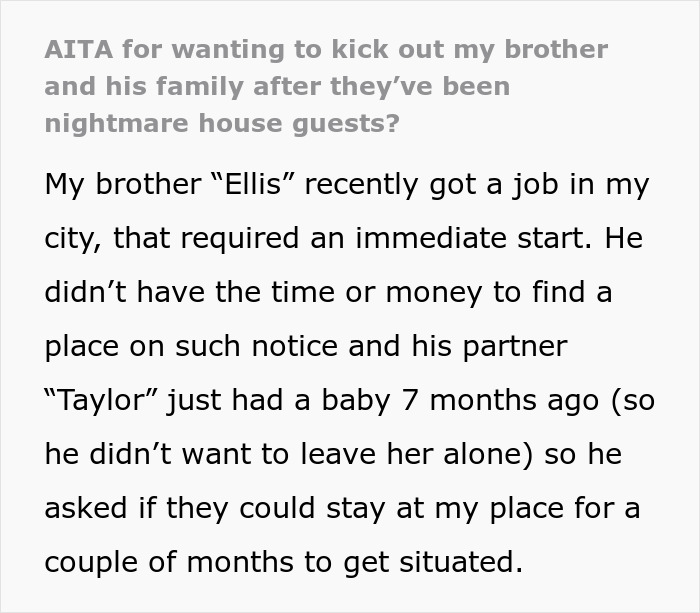

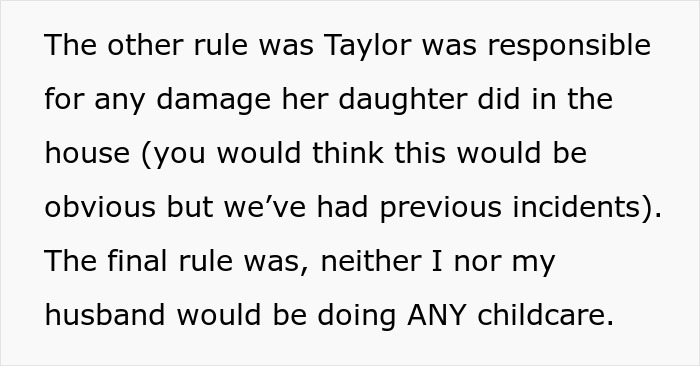


Image credits: Dimaberlin/Envato (not the actual photo)
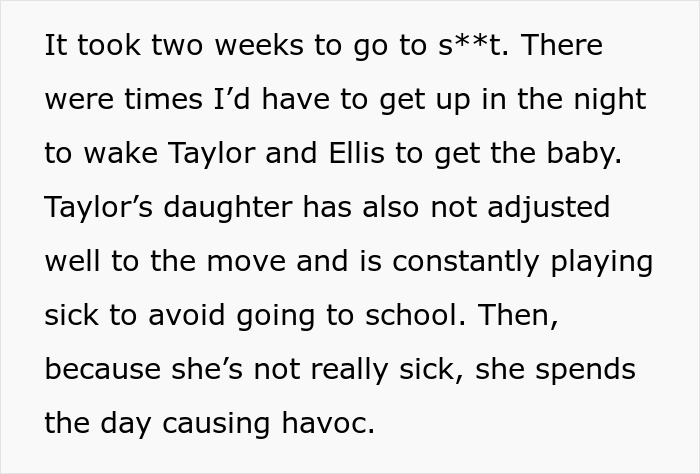
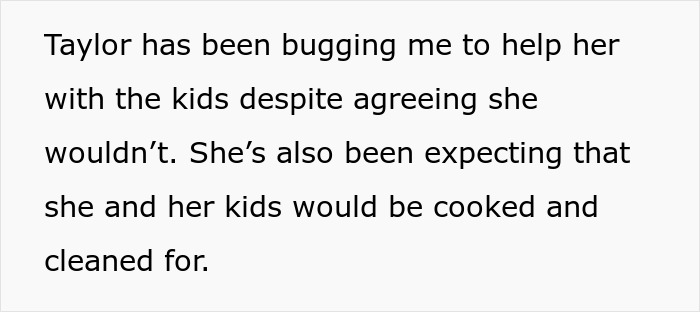
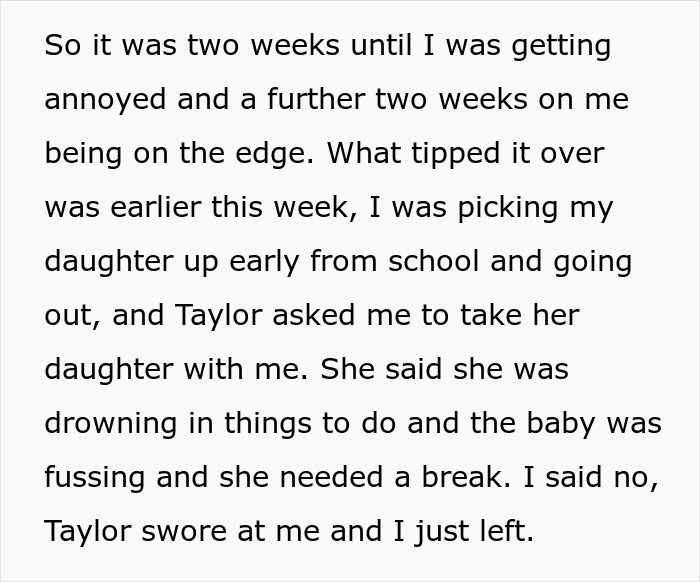
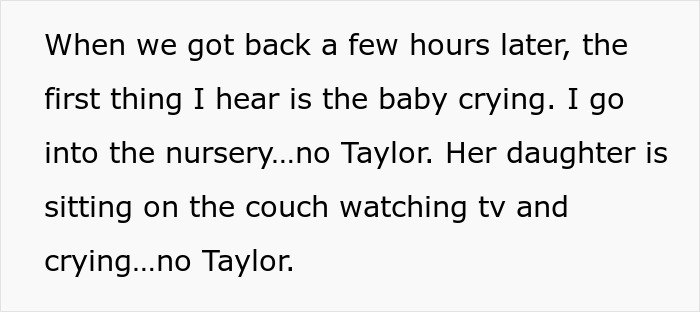

Image credits: wolfhound9111/Envato (not the actual photo)
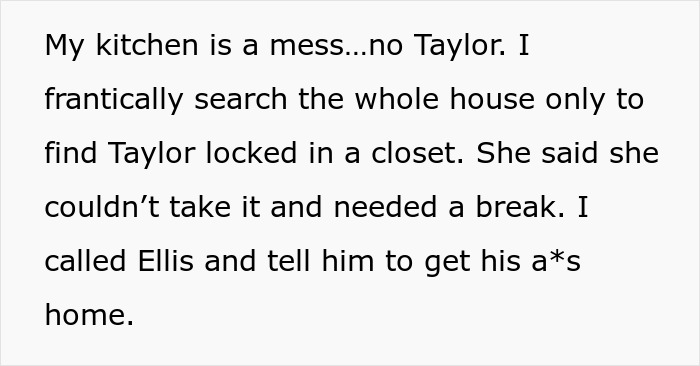

Image credits: iwantmyhomeback1
The author further elaborated on her brother and sister-in-law’s situation, providing more context to their struggles
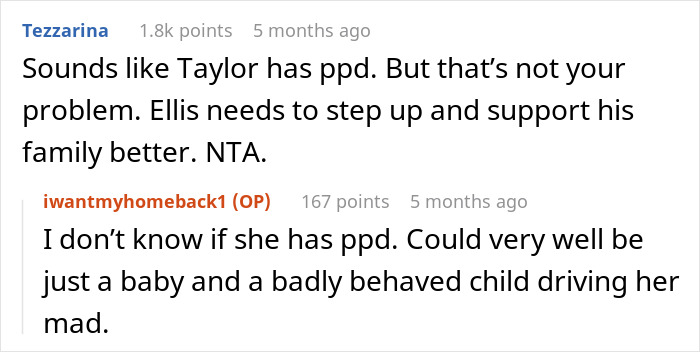
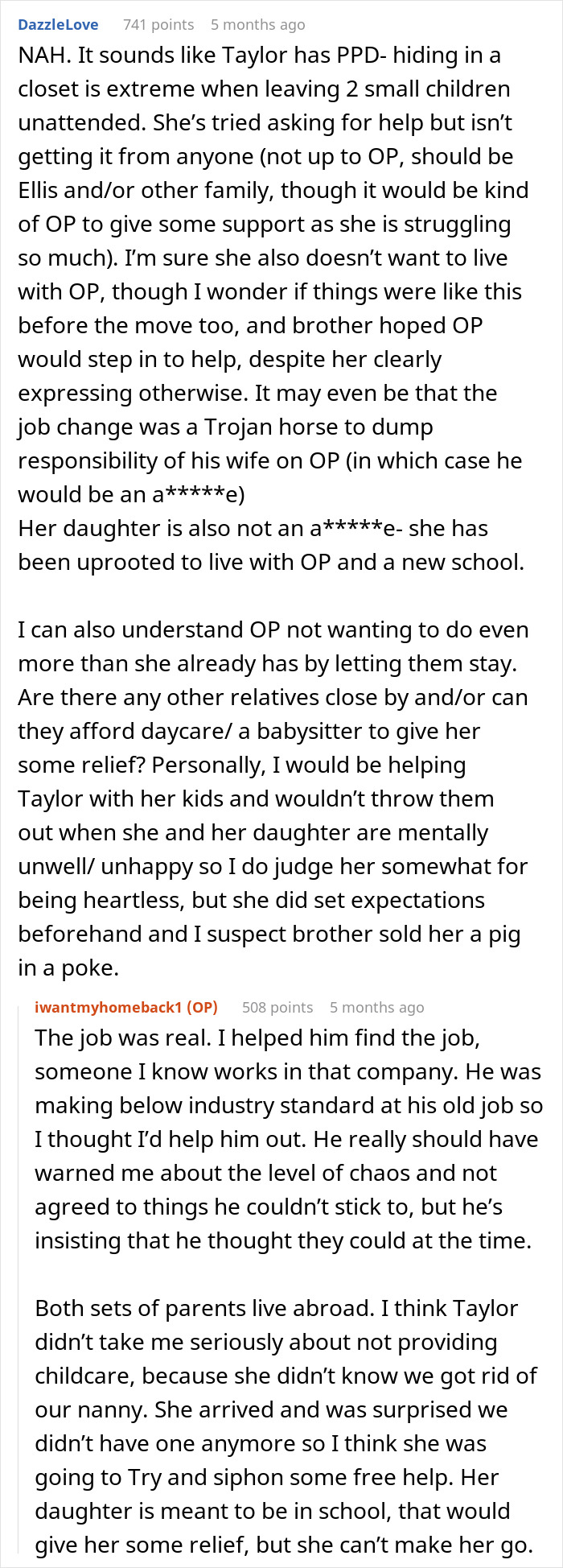
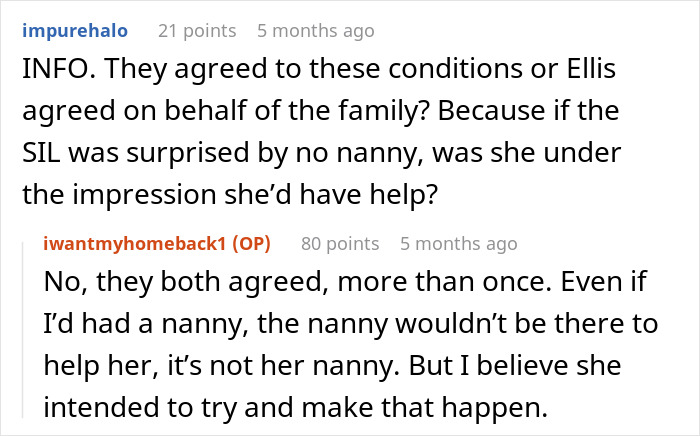
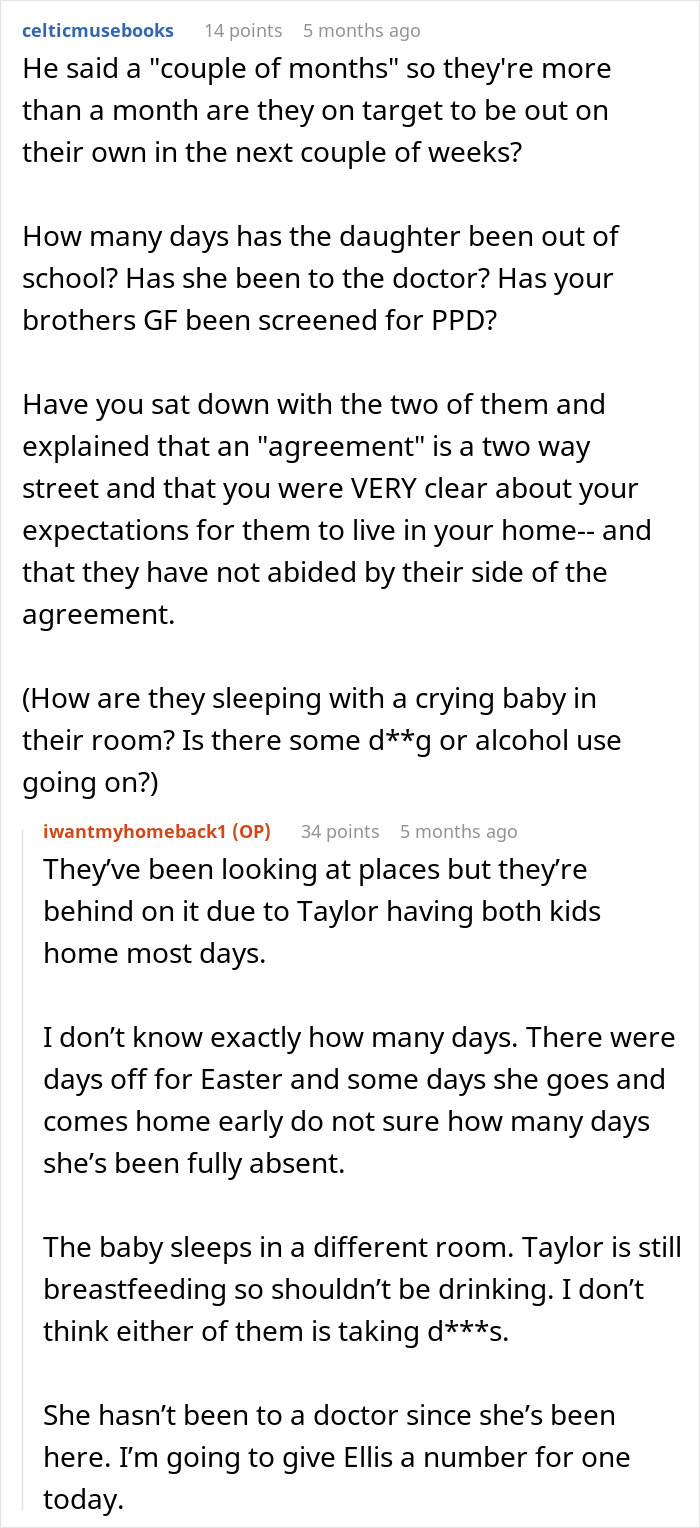
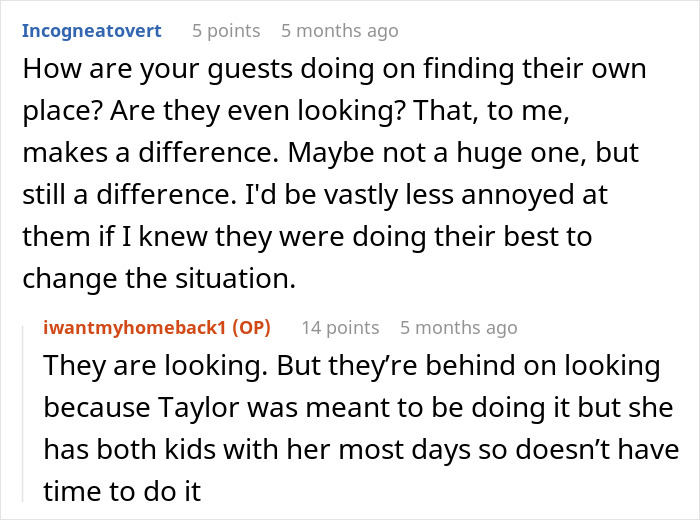
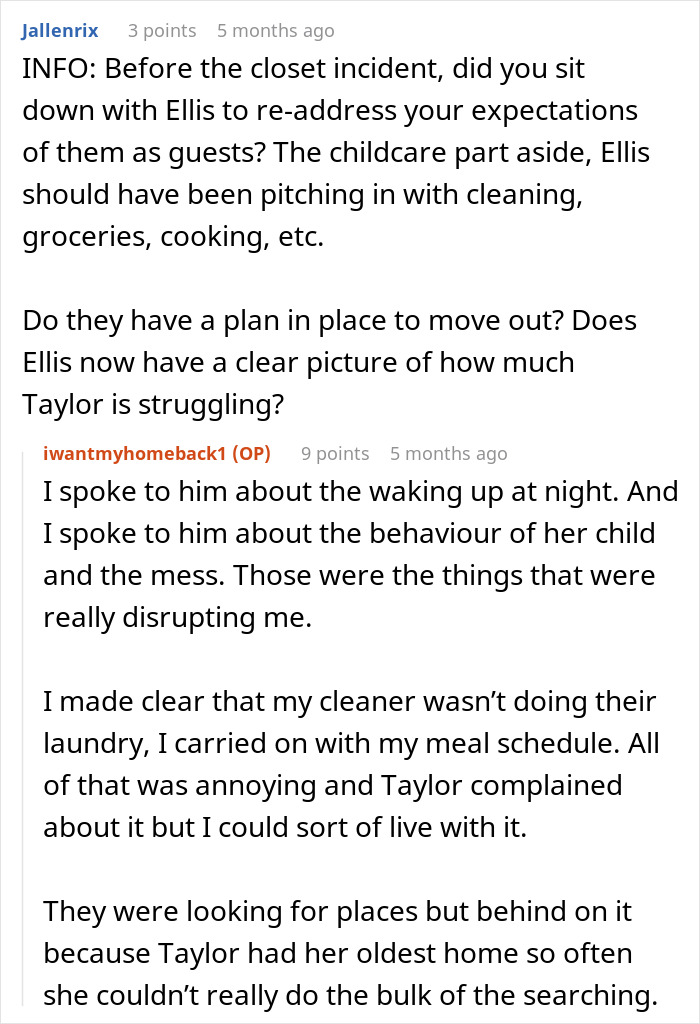
Being honest with your family is always the best approach
Many of us might feel angry or irritated when a family member ignores our needs and prioritizes their own. Say you are preparing yourself for a major work deadline, and then your younger brother decides that he should drop off his kids at your place since he wants to take his wife out for dinner. He just doesn’t seem to care about your busy schedule, even if you told him about it beforehand.
“You may feel irritable around your family if you feel like they’re unsupportive of you. You may also feel that way if they use you and take advantage of your kindness,” noted WikiHow in an interview with clinical psychologist and published author Asa Don Brown.
When it comes to family, honesty is usually the best policy. You might have noticed you are not always kind with your words when you point out your sibling’s mistake. For instance, you might yell at your sister for acting foolishly in their relationship.
In the context of understanding the emotional dynamics within close relationships, Margaret Clark, a social psychologist at Yale University, explains, “The fact that you can be meanest to the ones you love is not a sign that you feel the most negative towards loved ones, but that you feel the most comfortable expressing your negative emotions to them.”
In this particular incident, the stay-at-home mom was vocal about her needs and accordingly set ground rules for her brother’s family, which included his wife, daughter, and 7-month-old kid. She clearly mentioned that just because she or her husband were at home, it didn’t imply they were available to provide childcare. The author expected her brother and sister-in-law to take care of their own responsibilities.
However, her sister-in-law not only ignored their agreement but also neglected her duties. After being patient for a while, the author couldn’t take it any more and asked them to leave. She also offered to chip in for a hotel. Here, the stay-at-home mom prioritized her sanity when she was pushed to her limits.
Many women experience postpartum depression after giving birth
The author had mentioned how, once she found her sister-in-law locked in a closet, she needed a break. Many people online felt this could be a sign of postpartum depression (PPD).
In the first week after childbirth, women usually go through what is commonly known as “baby blues.” These are caused by rapid hormonal changes that occur after delivery. Some of the symptoms include mood swings, crying spells, and sometimes irritability. However, they don’t last for long.
When these symptoms intensify over time, chances are that the woman is experiencing postpartum depression. Women experience this form of depression during their pregnancy or in the first year after giving birth. As per research, it affects up to 1 in 7 women.
Some of the signs of PPD include extreme feelings of sadness or melancholy, moodiness, fatigue, and an inability to sleep or concentrate well. Additionally, it can also impact the way you think about yourself or your baby. You might find it challenging to care for and bond with your infant.
“No mother is happy all the time. It’s normal to be frustrated and even need to put the baby down sometimes,” says Lauren Osborne, M.D., former assistant director of the Johns Hopkins Center for Women’s Reproductive Mental Health.
For new mothers to feel better, PPD, which can be caused by genetics or hormonal changes, needs to be properly treated. Any mother who is constantly feeling sad and hopeless should seek professional help.
As family members, we can offer emotional support and help our loved ones get some much-needed rest. What are your thoughts about this incident? How would you have handled such a situation?
Many people believed the author’s brother and his family were to blame for not holding up their end of the agreement

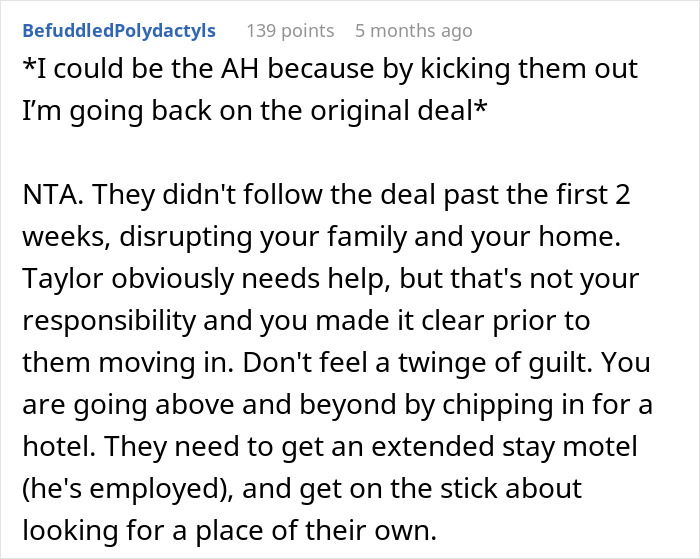
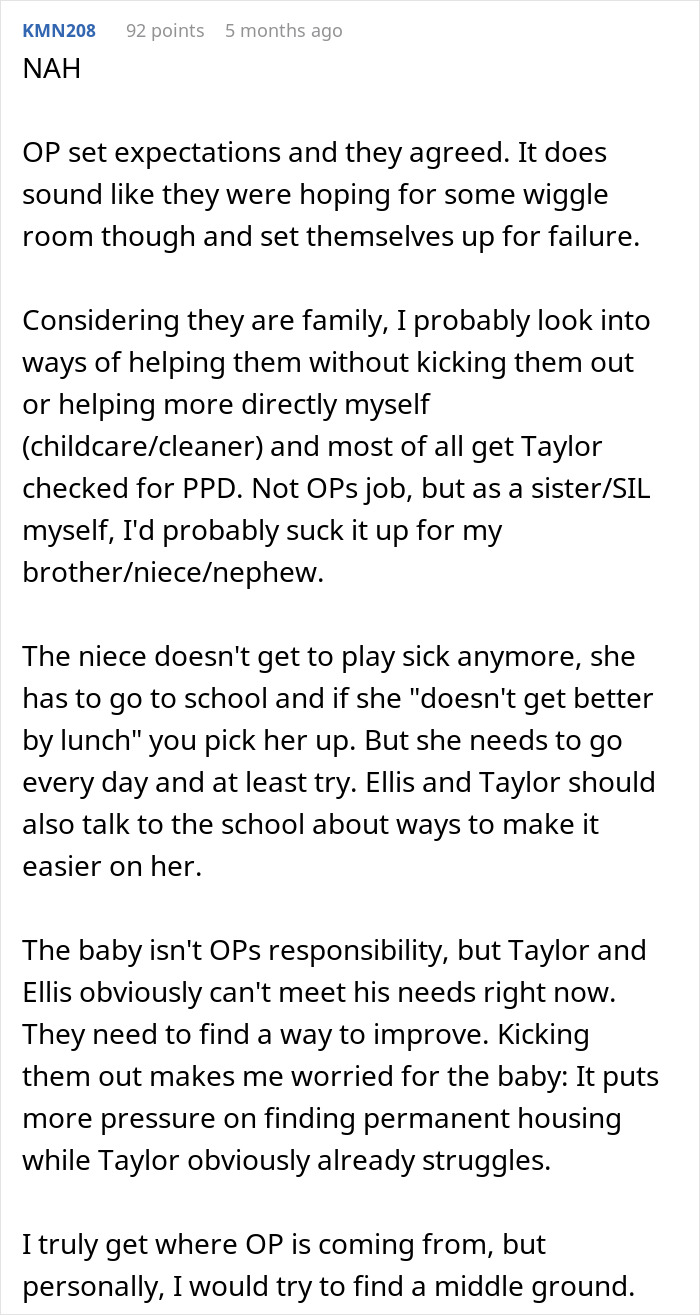


Others felt that the author could have been more empathetic and compassionate towards her sister-in-law during the challenging situation
